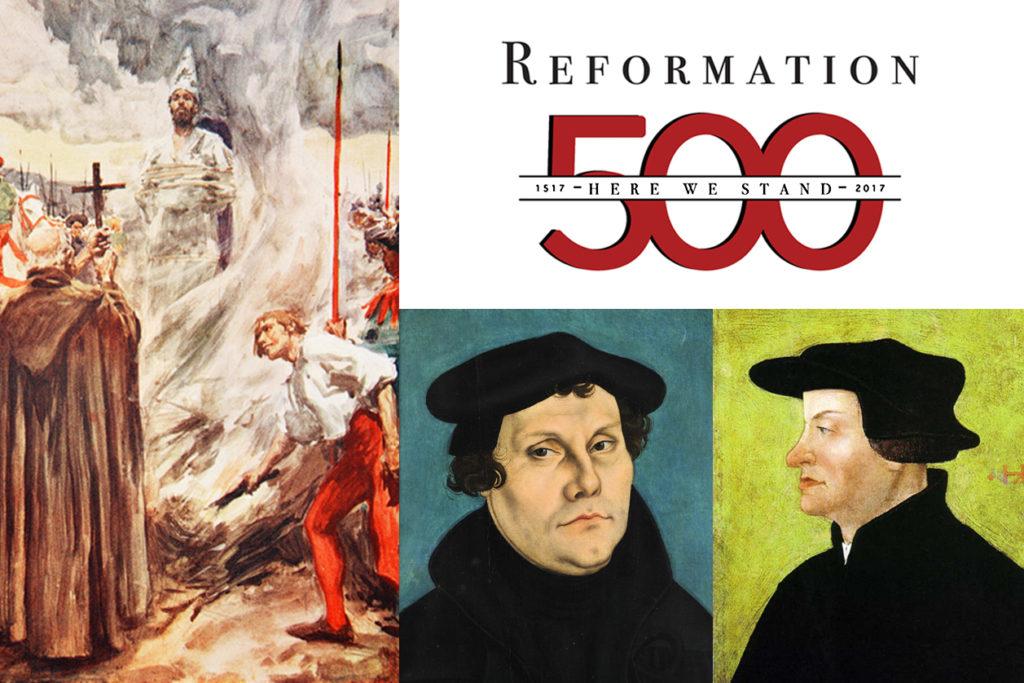1. The life of Zwinglio
Zwinglio was born into a prosperous family, just seven weeks after Luther’s birth on 1 January in Wildhaus, Toggenburg, eastern Switzerland. He began his formal studies in Vienna (1500–02) and then studied at the University of Basel, where he obtained his degree. Graduated in Arts (1504) and his Master of Arts (1506) (Luther received his in 1502 and 1505, respectively).
- Zwinglio was greatly influenced by the humanist tradition of Erasmo (a man with whom Luther engaged in a bitter theological dispute).
Erasmo was responsible for encouraging Zwinglio to study the original scripture text. Zwinglio’s passion for the Word, in addition to medieval speculation in the scholastic tradition, is largely due to the influence of Erasmo. His friendship, however, lasted little, when Zwinglio embraced Protestant theology confronted him with the Catholic humanist.
Zwinglio celebrated his first mass as a priest on 29 September 1506; he became pastor in Glaris and remained there from 1506 to 1516. During this period, he wrote:
“Although young, ecclesiastical duties inspired me more fear than joy, because I knew and remained convinced that I should account for the blood of the sheep who perished because of my carelessness.
Although philosophically opposed to the armed forces, he served as chaplain when his congregation’s recruits went to Italy in the service of Popes Julius II and Leo X. It was while serving as a chaplain during the Civil War in Cappel that he was killed.
Zwingli served as a pastor at Einsiedeln from 1516-1518, where he spoke out against the abuse of indulgences (Bernhardin Samson, a Franciscan monk from Milan, known as “Tetzel of Switzerland”, first provoked the zwinglio era in August 1518). In fact, some have suggested that the reform began there with Zwinglio, rather than Wittenberg with Luther. Zwinglio’s conversion in 1519 was influenced both by the miraculous liberation of a plague and by his readings of Luther’s early works.
What caused the reform in Zurich? Some have referred to the so-called “sausage business. “During Lent 1522, Zwingli was with Christoph Froschauer, a typographer who was working on a new edition of Paul’s epistles. Froschauer decided to serve sausages to his tired and hungry workers. “The public rupture of the Lent fast has shattered both medieval piety and ecclesiastical and public authority. The municipality of Zurich arrested Froschauer, but not Zwingli, because he didn’t eat the meat himself?(Lindberg, 169). Subsequently, Zwingli preached a sermon What about choice and freedom in terms of food?(March 23, 1522), a message almost certainly influenced by Luther’s pamphlet, “On the Freedom of christian man”. In that document, Zwingli argued that Christians were free to fast or not, although seemingly harmless in itself, the issue has provoked a public debate about medieval Catholic traditions and the church’s authority over the freedom of the individual believer.
Another factor that accelerated reform in Zurich was the practice of the explanatory preaching of Zwinglio, who abandoned the calendar of the Catholic Church and, on January 1, 1519, began preaching in verses through the Gospel of Matthew. Over the next few years, he expounded the New Testament and awakened in the people an appreciation of the simple truths of salvation only through grace by faith alone. In other words, by this practice, the flag of the single scriptura replaced the authority of the Roman Catholic Church.
CONTINUED in Part 2?

